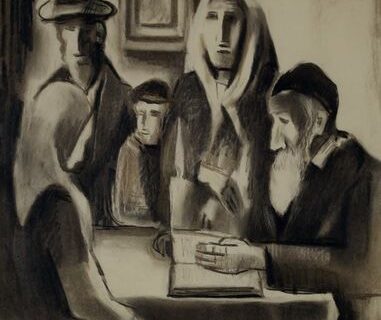I was reflecting on my college days recently and remembered a time I bought a game right before my exams started. My roommate at the time pointed out that it was a mistake to do that as he didn’t think I would have the discipline to study rather than play it. I countered that I wouldn’t play it until exams were done. I did wait, but upon reflection, I think a large part of why I resisted temptation was because I didn’t want him to shame me for not doing what I should do.
Shame, or rather the ability to hold people accountable, is a useful tool. I’m reminded of the story about Charles Darwin making a pros and cons list for marriage. While one of the cons was he would have less free time, the pro was a wife would be someone who would keep him industrious. Interestingly, one of his pros of not marrying was not being forced to visit relatives and being able to engage in society and city/London life as much as he pleased.
The atomization of our culture has been heightened with COVID as we’ve seen greater rates of drug deaths (which implies a greater rate of drug use), suicide, and general depravity (Onlyfans, for instance). An atomized people with no sense of community has no one to hold them accountable. Within communities, someone acting outside the norms leads to punishment of some kind, possibly simply shaming. In the modern day and age, where people are isolated and atomized, there is no mechanism by which to shame antisocial behaviors, so such behaviors grow. You’ll also see half-baked libertarian arguments for why this is good, but those arguments are as laughable as the libertarian movement is today.
One thing I’ve noticed due to Covid, but a trend in general, has been older people watching sermons on television because they’re afraid to go in person. That’s bad for several reasons. For one, Matthew 18:20 points out “For where two or three are gathered together in my name, there am I in the midst of them.” Watching the sermon on television isn’t gathered together. In order to love God, you need to love each other and be in community with each other. As 1st John 4:19-20 points out “We love because he first loved us. Whoever claims to love God yet hates a brother or sister is a liar. For whoever does not love their brother and sister, whom they have seen, cannot love God, whom they have not seen.”
Additionally, Christianity, or any group religion, has people to hold you accountable for acting wrongly. That’s likewise why AA and NA have sponsors. You need to be able to talk to people who you can lean on when you struggle. Likewise, you need someone to give you tough love to get you to straighten up and fly straight sometimes.
Some may say you should be strong enough to do it on your own, but realistically few are. We need community for the human interaction and for psychological well-being. Even if you don’t find the Christian argument compelling, you can lean on Aristotle who said, “anyone who either cannot lead the common life or is so self-sufficient as not to need to, and therefore does not partake of society, is either a beast or a god.”
If you don’t have people that hold you accountable, you can do whatever you want and no one shames you. Just like if Charles Darwin had stayed single, you can engage in depravity without any checks. If you’re on your own, you will rationalize and moralize vices. In a community, you can’t so easily rationalize away to others why you are doing what you aren’t supposed to.
A potential outgrowth of this is that the average person’s morality will decay in lockdown. That’ll have a cooling effect on outrage. People won’t have the same natural disgust response against vulgar, vile creatures because they themselves have gotten more vile. That’s why we’ll continue to see even more offensive and terrible legislative and social activities being normalized. If the average person’s morals decline, they’ll feel less inclined to push against other immoral activity. You’ll also get the “woke” church folks pushing “judge not” dogma to mean that people should be allowed to do whatever they want and there will be few strong enough to stand against it publicly.
It’s important to have and keep local community. You need church and ideally some fraternity. Men act differently with women in their midst and vice versa, so you need male only and women only areas. You need the male area or “mannerbund” to establish manly virtue and the female area to establish female virtue. You need the church for the religious and moral virtue. In either case, you need to build that community to hold you accountable.
A Southern man trying to make a good Southern plan.
Deo vindice!






Very timely. We do need others, and a godly cause greater than ourselves. Both, give us strength to push past the self.
There is a Japanese saying (which helps explain some of their atrocities in China during WW2): “A man away from home has no neighbors”. That is, he has no one to be morally or socially accountable to for his actions. A more modern version would be the familiar, “What happens in Vegas, stays in Vegas.” That helps explain the degeneracy in our multiracial hellscape cities, where nobody is connected to anyone else.
The lack of accountability – on a very real, personal level – is at the root of the degeneracy of our society. It is a mistake, however, to focus mainly on the individual to be held accountable. We need to get over the idea of “it’s none of my business.” If we truly care for people – for OUR people – then we have a responsibility to care for and nurture our people, and that means helping them up when they’re down. When those around us fall into bad habits, they need us to help lift them up by holding them accountable. When it is our time to fall, we depend on them doing the same for us. Yes, there is a point where accountability becomes undue interference, but we cannot allow ourselves to use that as an excuse. Excellent article, as usual!
“and women only areas.”
Women-only areas will exist, regardless, primarily for socialization but also as an arena for shaming and enforcement of community mores. The potential for status jockeying among women must be checked by men, and women-only areas are limited in what they can do to bring about female virtue — shaming, social ostracization, preventing gossip, etc. The burden of moral education of women first lies with her family and then her husband and the patriarchy of the tribe, especially as the burden of the punishment of women should properly be on men, not women.